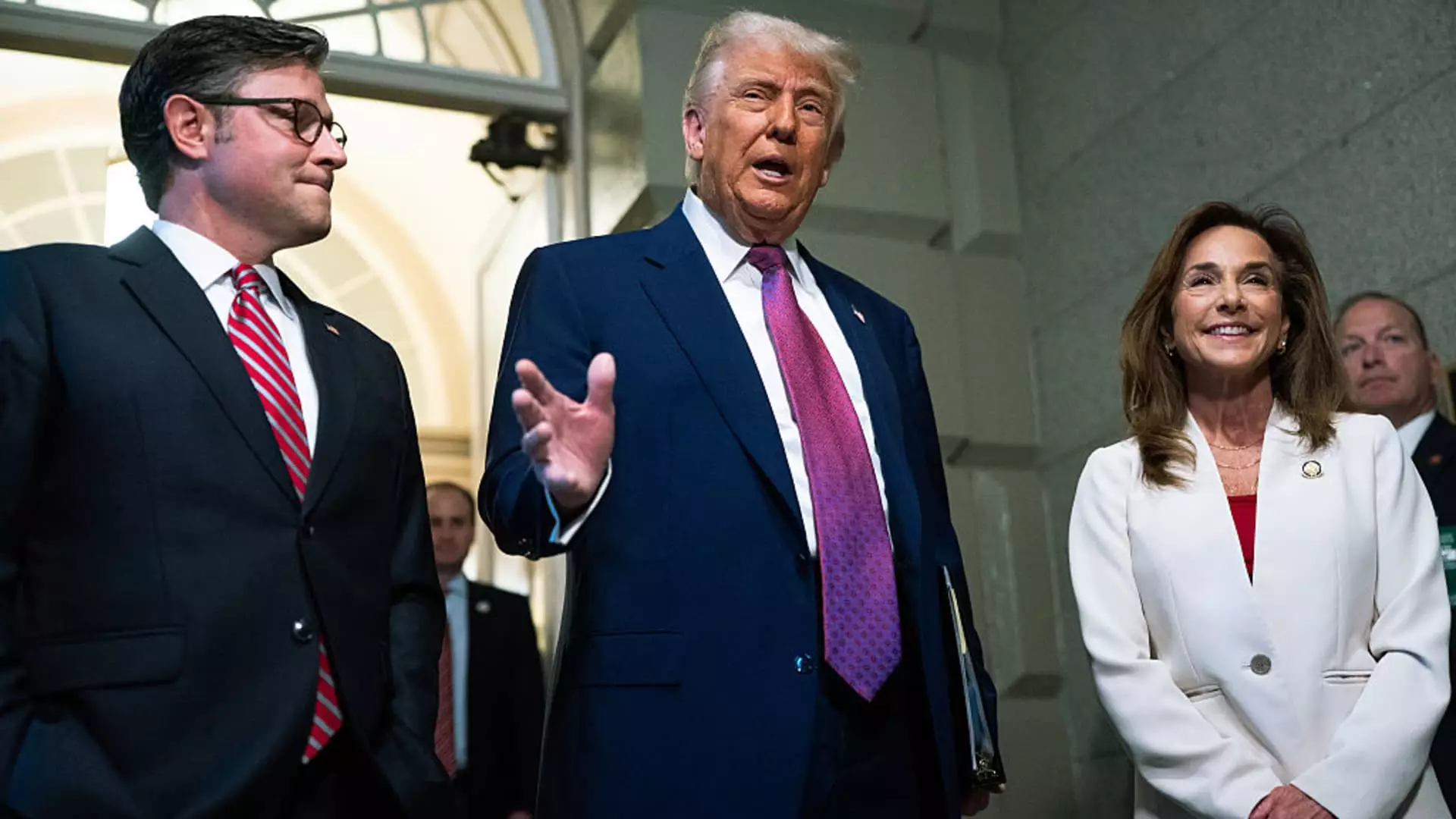The recent passage of President Donald Trump’s tax reform bill by the U.S. House of Representatives may have been framed as a significant triumph for the Republican majority, but the underlying implications reveal a more troubling narrative. With a razor-thin margin of 215-214, the bill sailed through amidst a chorus of dissent from Democrats and conservative Republicans alike. This should be a cause for concern rather than celebration, as the very fabric of what this legislation entails deserves thorough scrutiny. It has become increasingly clear that the bill caters to the elite while neglecting the needs of the working class, perpetuating a cycle of wealth concentration that harms the country’s socio-economic balance.
Internal Divisions and Compromises
The bill, which spans over 1,000 pages and includes 42 pages of amendments, stands as a testament to the intense negotiations required to secure the votes necessary for its passage. But these compromises, instead of uniting the party under a common goal, expose deep-seated divisions between moderates and hardline conservatives. For instance, certain provisions like the accelerated work requirements for Medicaid recipients signify an alarming shift toward penalizing the economically vulnerable—a sentiment echoed by Rep. Andy Harris’s decision to vote “present.” Such measures betray a fundamental misunderstanding of the challenges faced by the low-income population, showcasing a party more interested in ideological victories than genuine reform.
Meanwhile, the so-called “SALT deduction cap” increased under political pressure represents one of the many ways the legislation bends to the will of the affluent. The change is primarily designed to placate voters with household incomes under $500,000, but it conveniently overlooks the fact that real tax relief for the lower echelon remains absent. Tax cuts bundled with cuts to the social safety net do not merely jeopardize the future stability of welfare programs; they effectively perpetuate income inequality. The tax system should prioritize equitable distribution, yet this bill deadens that ethos.
Government’s Role in Economic Stability
Expressing the notion that the bill will rejuvenate the economy is a narrative engineered by its proponents, but recent analyses challenge this optimistic assertion. The Congressional Budget Office’s findings illustrate that the bill could exacerbate resource allocation disparities, benefiting the wealthiest while impoverishing those at the bottom of the income ladder. In a society that prides itself on the ideals of equality and opportunity, how can we endorse a proposal that systematically dismantles support for the most needy? This question weighs heavily in the political discourse yet tends to be overshadowed by grandiose proclamations of growth and prosperity.
Amidst these proceedings, Republican leaders have made rhetorical gestures toward creating a pro-business environment, frequently claiming tax cuts will stimulate investment. However, minutes of reflection provoke deeper questions about the sustainability of such claims. In a world where the stock market tumbles amid fears of an increasingly untenable federal deficit, one wonders if these policies are merely a house of cards, ready to collapse at the slightest gust of economic reality. This insistence on trickle-down economics, already disproven in various iterations across decades, underscores a disconcerting failure to learn from the past.
Looking Forward: A Troubling Path Ahead
As the bill makes its way to the Senate, its trajectory appears fraught with hurdles; several Republican senators have already voiced the need for adjustments before lending their support. This reluctance should serve as a bellwether indicating that even among party lines, reservations exist regarding this tax reform’s implications. One cannot help but ponder whether the expected political penalties will loom large enough to impede support from the wider Republican base.
The role of governance is to ensure the health and well-being of its citizens, and it is troubling to see that this legislation seems more about fulfilling campaign promises than genuinely addressing the plight of American families. Fiscal responsibility cannot be sacrificed at the altar of political expediency, nor can social compassion be an afterthought in the quest for economic gain. As the discussion continues, it is imperative to foster a dialogue that challenges the prevailing narrative of superficial victories and instead centers on real opportunities for the American populace.

Leave a Reply